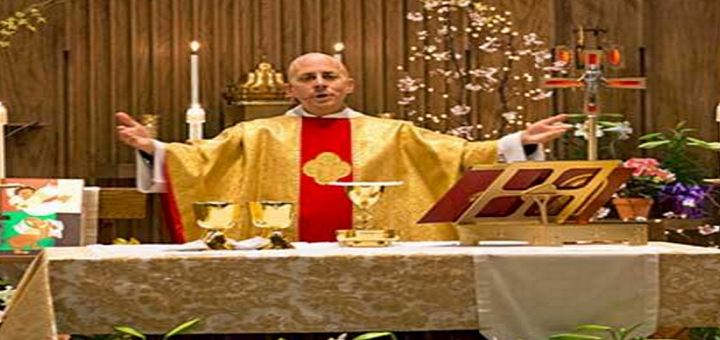Homilies: how many do we remember? Are they even worth remembering? As a child I will tell you what I remember - almost nothing. I remember watching my father nodding in and out (I say this with love and am thankful he was there) and in a moment of candor I can say the apple has not fallen far! Shame, Peter. Homilies are critical to our experience of the Mass. I know this now. A priest can touch us with a great homily. But what makes a perfect homily?
[tweet "Homilies are critical to our experience of Mass. @pserzo defines the perfect homily."]
The answer to this is varied and open to opinion. I recently attended a Mass where I felt I heard The Perfect Homily. I was visiting a church in NYC (Holy Cross Church in Hell's Kitchen.) The reading was Luke 17:11-19, one of my favorite passages in the Bible. Ten lepers met Jesus, begged for healing, and they were cleansed. However, only one leper came back and thanked Jesus at His feet. As Jesus witnessed this he said, “Your faith has saved you.”
Here is Father’s homily in short form.
Father started with a memory from his time in seminary. A rabbi taught the New Testament to them. There was no biblical or Hebrew word for "thank you." In modern Hebrew the term is Todah. In context, "thank you" signifies an ending. "Shalom" is one word used for "peace" and "thank you," but it is open-ended.
Ten lepers wanted to be restored to health and their communities. In those days they had to wear a bell so people could hear them coming. Priests could reintegrate them. We all carry our spiritual leprosy. To us, reflecting as a church, do we welcome those who are cast out as lepers???
We have to be a community of welcome. Luke adds a twist: Samaritans were not accepted by the Jews at that time. While their beliefs are closely related, they view themselves as the true descendants of the ancient Israelites.
The point here is that ONLY a Samaritan came back to thank Jesus. Being thankful takes the center off of us. We see the broader plan of God. A 14th-century saint said, "If there is one prayer we say, let it be the words 'Thank You'."
Father did several things in this homily that made it a perfect homily:
1. Context: He provided perfect context. I could relate and understand what was going on in the gospel making thank you and gratitude the central theme.
2. Learning: Father explained lepers, wearing of bells, Priests, Samaritans, and the Hebrew term Todah.
3. Call to Action: What can I do? How does this passage affect me? Father spelled it out with the term spiritual leprosy and how that applies to me, us and the Catholic Church.
4. Mission: Father tied this back to our Holy Father and the Church’s mission: to be a welcoming Church.
5. Length: The homily was not too long but said what needed to be said succinctly and lucidly.
6. Element of Surprise: He was taught the New Testament by a Rabbi??!!! FASCINATING! This is what Father started with and he had my attention from the get-go.
My purpose here was twofold. I was able to share a amazing homily. In hearing this and processing it made me consider what I believe to be the elements of a perfect homily. My hope is that you gained some insight from this and and the question for yourself: What is a perfect homily?
Copyright 2017 Peter Serzo
About the Author
Peter Serzo
Peter Serzo, observer, listener, author, speaker, and blogger. He shares his experiences at different Catholic churches at Dotirome.com and on his popular Priest Podcast, with enlightening conversation with those that lead (not a theology conversation but a conversation on being a priest/leader/human). Peter travels, visiting different Catholic churches satiating his curiosity and desire to spread each parish's uniqueness though his blog and presentations.



.png?width=1806&height=731&name=CatholicMom_hcfm_logo1_pos_871c_2728c%20(002).png)
Comments